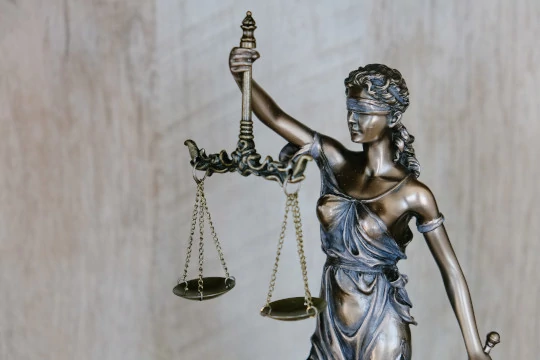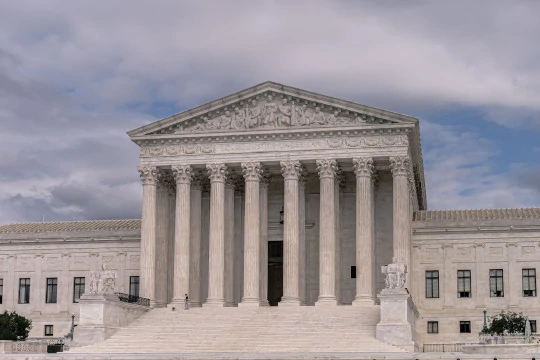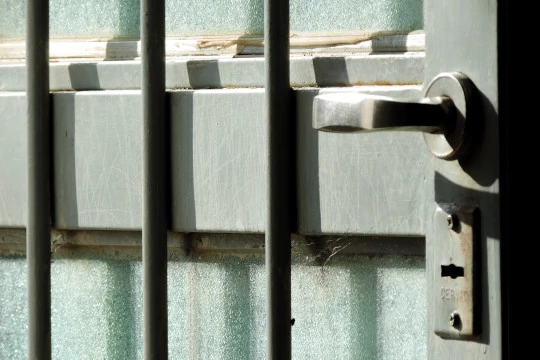Some of the cases Joe has litigated, with links to the briefs he filed and the published opinions obtained, are described below.
Fourth Amendment Searches, Seizures, and Excessive Force
The police search people without probable cause or reasonable suspicion and use excessive force. The Fourth Amendment is designed to prevent this.

Allen v. County of Lake
71 F.Supp.3d 1044 (N.D. Cal. 2014)
A group of renegade members of the County of Lake's narcotics task force raided the gardens of numerous medical cannabis patients. Joe represented ten such patients in a federal action against the county, which resulted in a preliminary injunction against the defendants and a settlement of $250,000.
Eteghaei v. County of Alameda
2022
Despite knowing full well that the occupants of their home were innocent and cooperative, the cops came with an extreme display of force and pointed assault rifles at the heads of the innocent homeowners. This lawsuit seeks to remedy this and deter such actions in the future.
Civil Rights
People are also the victims of racial, religious and other forms of discrimination. Actions are available under the Civil Rights Act to remedy this.

Harris v. The Barn
2017
The Barn is a bar in Clearlake Oaks, California that posted a photograph of Carl Ray Harris, an African-American man, with a caption referring to him as a racial slur. In Harris v. The Barn, Joe brought a civil action on Harris' for the violation of his civil rights, and won a settlement of $60,000.
Anthony Smith v. Gipson
2021
A case challenging a policy depriving Muslim inmates from kosher meals during Ramadan, promulgated by the California Department of Corrections. On August 12, 2021, Joe filed his motion for summary judgment for the plaintiff. The case is on appeal.
De Santis v. City of Fresno
2021
A legal challenge, based on irregularities in the City's commercial cannabis permitting scheme.
Appeals
Win or lose at the trial court and the case usually is appealed These are a sample of the appeals Joe has filed.

United States v. Rosenthal
454 F.3d 943 (9th Cir. 2006)
United States v. Rosenthalinvolved a highly publicized federal criminal trial of author and activist Edward Rosenthal, for his cultivation of approximately 3,000 cannabis plants under California law. Although Rosenthal faced a ten-year minimum sentence, he was only sentenced to one-day, time served for his convictions. Joe drafted both the pre-trial motions to dismiss and, later, a successful appeal of Rosenthal's convictions.
Ross v. RagingWire Telecommunications
42 Cal.4th 920 (2008)
The issue before the California Supreme Court was whether medical cannabis patients are protected from workplace discrimination based on their status as medical cannabis patients. In a hotly contested 5-2 decision, the California Supreme Court unfortunately rejected Ross' claims.
Brodheim v. Cry
584 F.3d 1262 (2009)
While incarcerated, Michael Brodheim was threatened with retaliation by the Department of Corrections for filing a grievance against a corrections officer who gave him an improper command. After the district court granted summary judgment in favor of the defendants, Joe intervened in the appeal and obtained a published opinion reinstating Brodheim's civil suit for the violation of his First Amendment right to seek redress of grievances.
Public Records Act
California's Public Records Act is designed to ensure the public access to government records, so it can be held accountable. Some localities, however, do not abide by the disclosure requirements of the Act, which prompts litigation to compel them to abide their obligations.

Burrough v. City of Fresno
2022
To procure further evidence of irregularities in the City of Fresno's Cannabis Business Permit application process, Joe filed a request for information from the City under California's Public Records Act. After the City refused to disclose numerous records, Joe filed a lawsuit to compel the City to disclose withheld documents.
Cannabis Law
California's marijuana laws have undergone and significant transformation in the last fifteen years, prompted largely by the State's medical marijuana laws enacted in 1996. As Chief Counsel for Americans for Safe Access, Joe litigated medical marijuana cases of all kinds and continues to work on cannabis cases.

ASA v. DEA
706 F.3d 438 (D.C. Cir. 2013)
Marijuana's placement in Schedule I of the federal Controlled Substances Act has always been erroneous. Joe litigated this issue before the District of Columbia Court of Appeals. Unfortunately, but not surprisingly, the court refused to reschedule marijuana.
People v. Jackson
210 Cal.App.4th 525 (2013)
In 2013, the legality of medical cannabis dispensaries under California remained a hotly contested issue. Joe brought a successful appeal of Jackson's convictions, which for the first time established the legality of properly organized medical cannabis dispensaries under California law.
Garden Grove v. Superior Court (Felix Kha)
157 Cal.App.4th (2007)
Until 2007, California courts disagreed over whether medical cannabis seized by the police must be returned to qualified medical cannabis patients. After the police refused to comply with a court order for the return of Felix Kha's medicine, Joe successfully defeated the City's appeal, which established the right of medical cannabis patients to the return of cannabis improperly seized by the police.
Americans for Safe Access v. California Highway Patrol
2005
Prior to the court's opinion in Garden Grove, the CHP had a written policy authorizing its officers to seize cannabis from qualified patients. Joe filed suit on behalf of six patients, which resulted in a change of this policy.
Rose Johnson v. Department of Motor Vehicles
2008
Until 2008, multiple DMV offices revoked the driver's licenses of medical cannabis patients based on their status as such. Joe file a Writ petition on Johnson's behalf in the court, which led to the restoration of Johnson's driver's license, and also resulted in a permanent change in DMV policy.
Chaplin v. County of Nevada
2018
Medical marijuana cultivator Brian Chaplin was the victim of an armed robbery at his cultivation site in which the robbers stole approximately fifty pounds of marijuana. When he called the police to report the crime, the police turned their attention on Chaplin, rather than the armed robbers, and obtained a search warrant to seize his remaining 350 pounds of marijuana. Joe filed a complaint on Chaplin's behalf, which attracted the attention of Rolling Stone Magazine, and resulted in a sizeable settlement.
Spittler v. City of Clearlake
2015
Despite the promise of the Compassionate Use Act that qualified medical marijuana patients would be allowed to cultivate their medicine, the City of Clearlake passed on ordinance banning all such cultivation. Joe filed a civil suit on behalf of three patients challenging this ordinance, which compelled the city to repeal it.
County of Butte v. Superior Court
175 Cal.App.4th 729 (2009)
Seven medical cannabis patients formed a collective under California law in which they cultivated 41 plants for the medical use. After plaintiffs were forced by the sheriff to destroy the majority of the cannabis plants, Joe filed a lawsuit on behalf of the patients and won a published opinion establishing that medical marijuana patients, like anyone, can file civil suits for the illegal destruction of their property.
County of San Diego v. San Diego NORML
165 Cal.App.4th 798 (2008)
The tension between federal and state law regarding their treatment of cannabis came to the fore in County of San Diego v. San Diego NORML. Working with the ACLU and Drug Policy Alliance, Joe intervened in the lawsuit and overcame the County's claim the federal law preempts California's medical marijuana law and requiring it to comply with the latter.
Jesse Ewing v. Valley Transportation Authority
2005
After Ross, employers would deny unemployment benefits to medical cannabis patients terminated for using their medicine. In Jesse Ewing v. Valley Transportation Authority, Joe filed an appeal of the denial of unemployment benefits to Ewing with the California Unemployment Insurance Appeals Board and got Ewing's unemployment benefits reinstated.
Early Termination of Supervised Release
All too frequently forgotten in our criminal justice system are people who have been incarcerated for lengthy prison sentences only to find themselves serving mandatory minimum terms of supervised release once they are released from prison. Motions for early termination of supervised release are a way to finally get them out from under the government's thumb.

United States v. Way Long
2022
After serving 25 years, Way Long's five-year supervised release was terminated.
United States v. Sandusky
2022
After serving a lengthy prison sentence for medical marijuana, Aaron Sandusky now fights to end his 5-year supervised release.